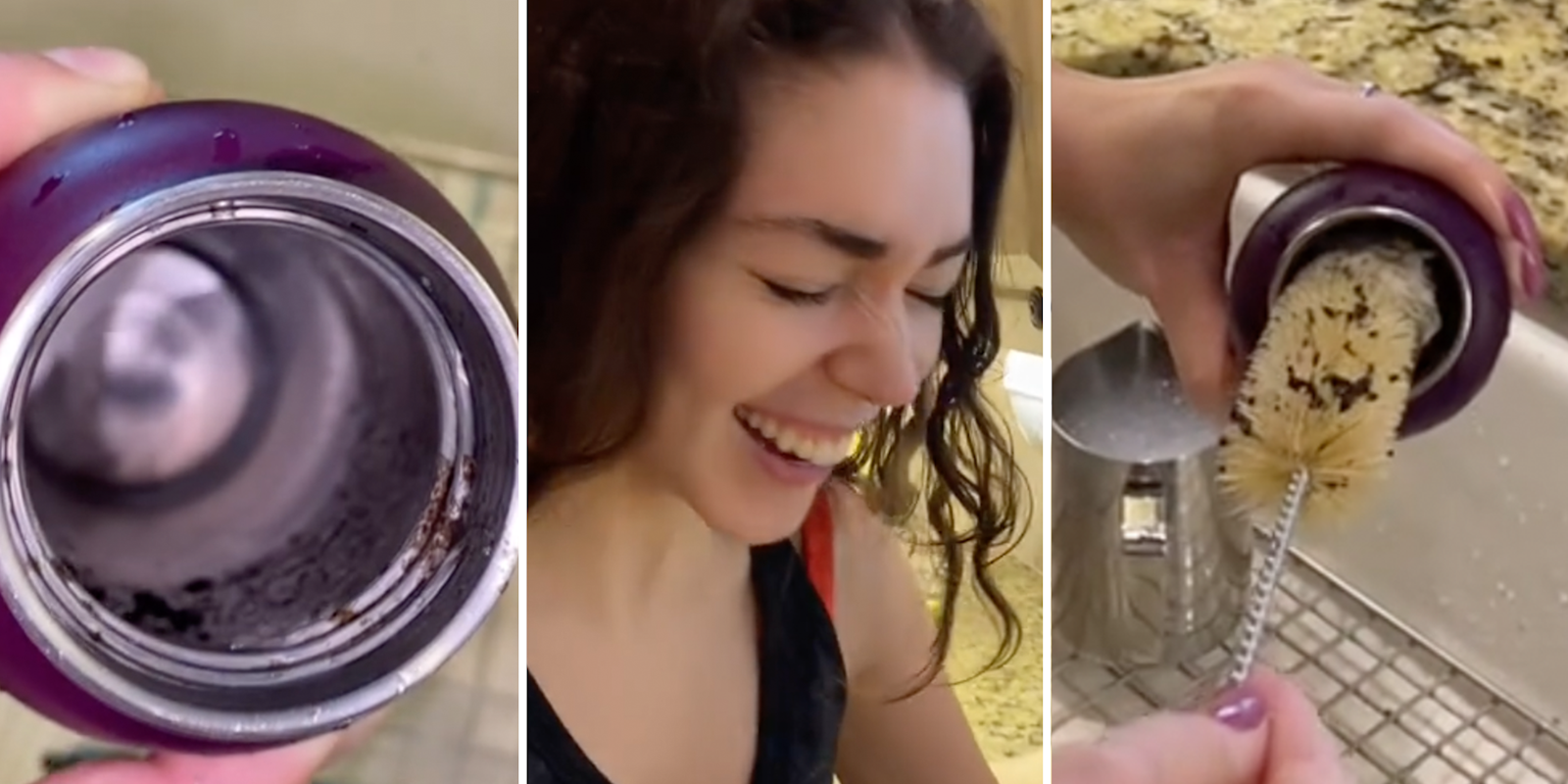How often do you need to wash out your water bottle? Definitely more frequently than never.
In a TikTok from the account @kookynell, that has more than 1.7 million views, a woman’s first time washing out her water bottle is documented, as is the gunk that’s been chilling in it.
As if seeing the dark-colored gunk on a soapy pipe-cleaner brush isn’t enough, you also get a glimpse into the depths of the hydro flask, where there is more gunk—possibly mold.
Commenters were distressed: “Am I the only one that smells my water bottle (and look in it) every time I want to use it?”
“Does it not taste bad with all that in it??”
Others volunteered that they don’t wash their water bottles either (or don’t do it frequently), and they’re fine. One person claimed their husband hasn’t washed his in five years.
The water bottle in the video appears to be a hydro flask, but Stanley water bottles have become very popular on TikTok. They’re also somewhat controversial.
In August, a mother claimed the Stanley cup she lets her daughter drink from tested positive for lead. Last month, a woman said she developed a cough from mold, after not cleaning hers thoroughly enough.
In addition to mold, other bacteria can be transferred to the cup via your mouth or hands if you don’t wash your water bottles frequently. It’s recommended you wash—not just rinse—water bottles once a day, or once a week at the very least, according to Popular Science.
Beyond discourse about how often you should be washing these bottles and tumblers, and what’s potentially in some of these cups, there’s been discussion about over- and hyper-consumption of them.
Last week, creator Carolina Kyung posted her updated collection of Stanley tumblers in a variety of colors, which fills three rows. Kyung claims in the comments that she drinks from these cups as well as collecting them, but it started conversation about the line between collecting and consumerism, and whether criticism around collecting stuff like Stanley cups is gendered.
There’s also the irony that these kinds of cups were supposed to help cut down on plastic water bottle consumption, and now people are over-consuming them.
We reached out to @kookynell for comment.



